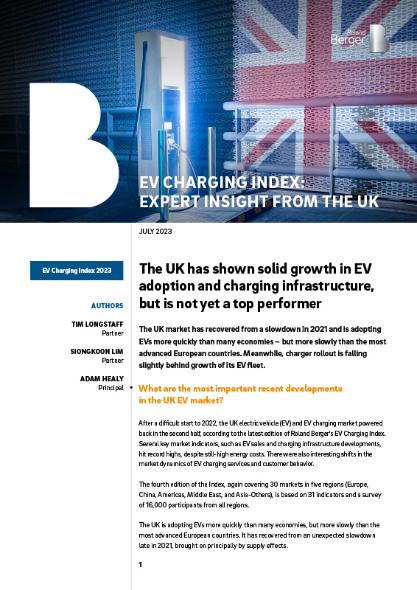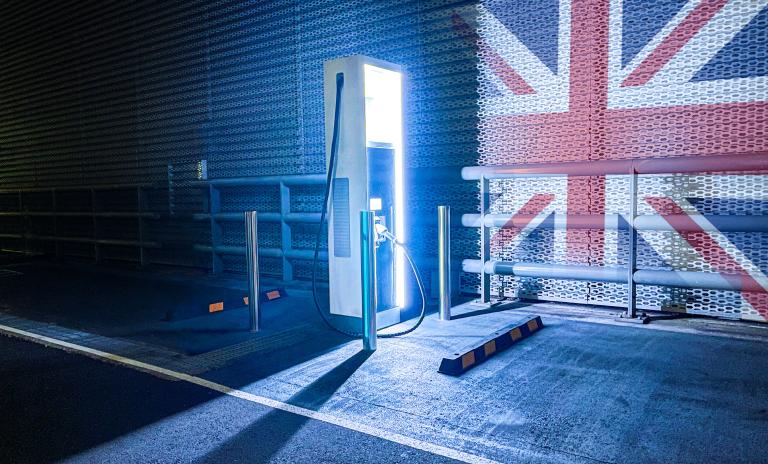EV Charging Index: Expert insight from the UK

While the UK emobility market has grown in the last 2 years, both in terms of EV sales penetration and the associated charging infrastructure, it still has to catch up with the leading countries


By Siongkoon Lim, Tim Longstaff and Adam Healy
The UK market has recovered from a slowdown in 2021 and is adopting EVs more quickly than many economies - but more slowly than the most advanced European countries. Meanwhile, charger rollout is falling slightly behind growth of its EV fleet.
After a difficult start to 2022, the UK electric vehicle (EV) and EV charging market powered back in the second half, according to the latest edition of Roland Berger’s EV Charging Index. Several key market indicators, such as EV sales and charging infrastructure developments, hit record highs, despite still-high energy costs. There were also interesting shifts in the market dynamics of EV charging services and customer behavior.
The fourth edition of the Index, again covering 30 markets in five regions (Europe, China, Americas, Middle East, and Asia-Others), is based on 31 indicators and a survey of 16,000 participants from all regions.
The UK is adopting EVs more quickly than many economies, but more slowly than the most advanced European countries. It has recovered from an unexpected slowdown late in 2021, brought on principally by supply effects.
UK EV drivers, along with counterparts in Northwester Europe and notably China, represent an increasingly mature market for EV charging. Despite negative reports in the media, it is clear that EV users are becoming increasingly accustomed to and comfortable with the state of their charging infrastructure .
National approaches to public charging differ greatly, with the Dutch standing out for having pushed a lot of (mostly slow) public chargers into the market. Most mature EV economies now possess one public charger for every 25 vehicles, but the UK’s charger rollout is falling slightly behind growth of the country’s EV fleet.
The prevalence of fast DC chargers over slower AC chargers in the public charger fleet is growing. While many slow charging use cases exist in long-term parking, first-mover nations like the Netherlands are now unusual in having a large majority of slower chargers in the public regime.
Roland Berger is monitoring a wide range of behaviours and attitudes towards charging worldwide, from range anxiety and pricing to confidence in charging infrastructure. We have already completed more than 25 strategy projects relating to EV charging in the UK alone. The team is seeing behaviors rippling out from their Oslo epicenter to EV owners, charge-point operators and freeholders worldwide. It will be interesting to continue to build this time series as the world’s markets mature.

While the UK emobility market has grown in the last 2 years, both in terms of EV sales penetration and the associated charging infrastructure, it still has to catch up with the leading countries
Sign up for our newsletter and get regular updates on Automotive topics.
